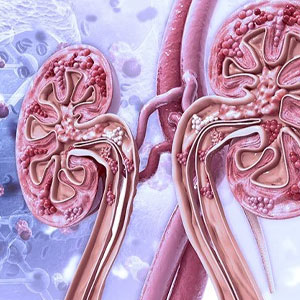Systemic lupus nephritis Treatment in Vijayawada
Lupus nephritis is a kind of kidney disease brought about by systematic lupus erythematosus NIH external link (SLE or lupus). Lupus is an immune system illness NIH external link — a problem where the body's immune system attacks the body's own cells and organs. Kidney disease brought about by lupus might deteriorate over the long haul and lead to kidney failure. If your kidneys fail, you will require dialysis or a kidney transplant to maintain your wellbeing.
Get the lupus nephritis treatment from a kidney disease doctor in Vijayawada, Dr. Anvesh Golla
What are the Causes of lupus nephritis?
As numerous as half of adults with systematic lupus develop lupus nephritis. Systematic lupus makes immune system proteins damage the kidneys, hurting their ability to filter waste.
What are the symptoms of lupus nephritis?
The symptoms of lupus nephritis might incorporate frothy urine and edema — swelling that happens when your body has an excess of fluid, normally in the legs, feet, or ankle, and less often in the hands or face. You may likewise develop hypertension.
Kidney issues frequently start simultaneously or shortly after lupus symptoms NIH external link appear and can incorporate
- joint pain or swelling
- muscle pain
- fever with no known reason
- a red rash, frequently on the face, across the nose and cheeks, sometimes known as butterfly rash due to its shape
What are the risk factors?
There aren't much of known risk factors for lupus nephritis, with the exception of:
- Sex. In spite of the fact that women are bound to get lupus, men get lupus nephritis more than women.
- Race or ethnicity. Blacks, Hispanics/Latinos and Asian Americans are bound to have lupus nephritis than whites.
How is diagnosis done?
Tests to diagnose lupus nephritis include:
- Blood and urine tests. In addition to standard blood and urine tests, you might be asked to gather your urine for a whole day. These tests measure how well your kidneys are functioning.
- Kidney biopsy. A biopsy — where your doctor eliminates a small segment of kidney tissue for lab examination — is the most definitive test for diagnosing lupus nephritis. It can likewise assist with determining how extreme your disease is.
How do doctors treat lupus nephritis?
Doctors treat lupus nephritis with meds that suppress your immune system so it stops attacking and harming your kidneys. Goals of treatment are to
- decrease inflammation in your kidneys
- decrease immune system activity
- block your body's immune cells from attacking the kidneys directly or making antibodies that attack the kidneys
Caring for someone with lupus nephritis is challenging and requires specific expertise. Since there is a team of specialists, you can see a kidney specialist who specializes in lupus and really focuses on individuals with lupus nephritis. Every year, many individuals get care for lupus nephritis.
Consult Dr. Anvesh Golla who is the best doctor for Renal Hypertension Treatment In Vijayawada

